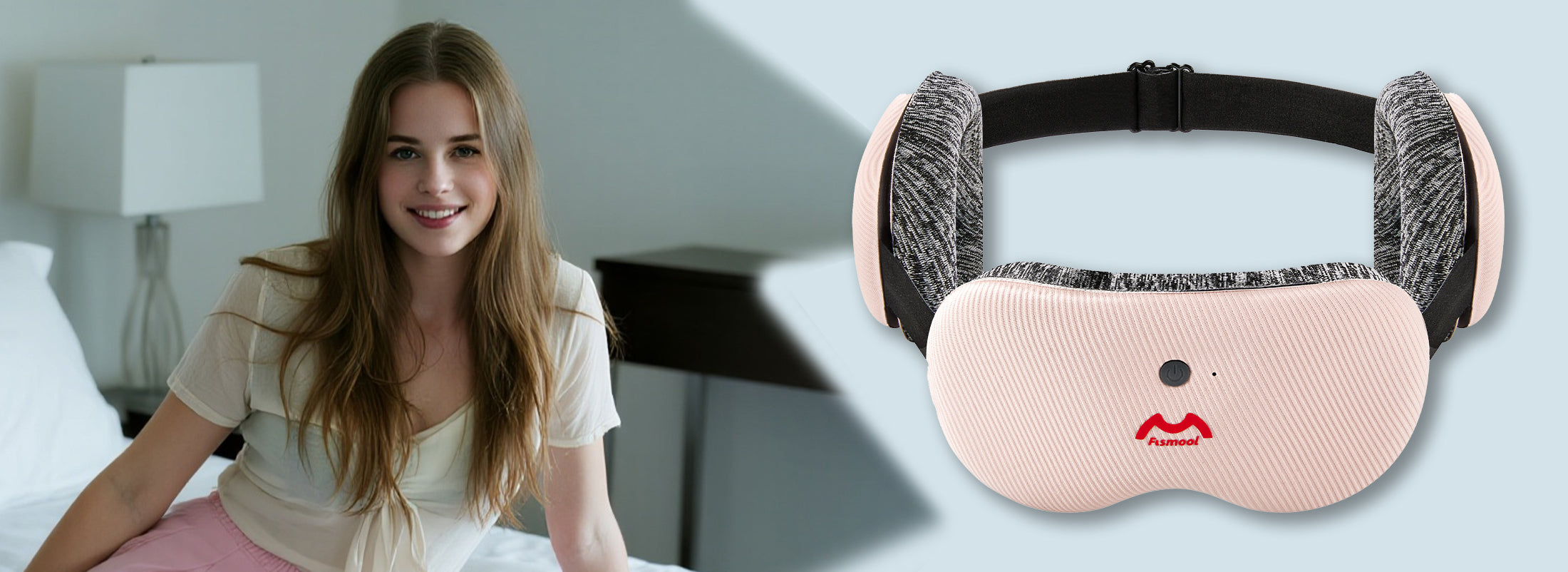If you often toss and turn at night, feeling tired but unable to fall asleep, this article is for you.
Here, we’ll explain the causes of insomnia, share practical tips to fall asleep fast, and recommend proven sleep aids to help you restore deep, restful sleep.
1. Why Can’t You Sleep? (Understanding the Causes of Insomnia)
-
Overactive Brain
When you’re stressed or anxious, your body produces more cortisol, a stress hormone, keeping your nervous system alert and delaying sleep. -
Disrupted Circadian Rhythm
Irregular sleep schedules, frequent late nights, or jet lag can throw off melatonin production, making it harder to fall asleep at the right time. -
Sleep Environment Disturbances
Light, noise, and uncomfortable room temperature can disrupt sleep — think streetlights, phone screen glare, or traffic sounds. -
Diet and Lifestyle Factors
Consuming caffeine (coffee, tea) or heavy, spicy meals at night can stimulate your nervous system and delay sleep onset. -
Blue Light Exposure
Extended screen time before bed suppresses melatonin production, keeping you alert when your body should be winding down.
2. Can’t Sleep? 10 Tips to Fall Asleep Fast
-
Use White Noise to Sleep
-
Sounds like rain, ocean waves, or crackling fire can mask disruptive noises and calm the mind.
-
A Bluetooth White Noise Sleep Mask combines 3D blackout design with soothing sounds to help you drift off quickly.
-
-
Try the 4-7-8 Breathing Technique
-
Inhale for 4 seconds, hold for 7 seconds, exhale for 8 seconds — this slows your heart rate and relaxes your body.
-
-
Create a Dark Environment
-
Use blackout curtains or wear a 3D contoured sleep mask to block all light.
-
-
Reduce Noise Distractions
-
Use earplugs or a noise-blocking sleep mask to minimize disturbances — perfect for naps, travel, or noisy environments.
-
-
Limit Screen Time Before Bed
-
Turn off your phone and computer at least 30 minutes before sleeping to avoid blue light interference.
-
-
Soak Your Feet in Warm Water
-
A 10–15-minute warm foot bath improves blood circulation and relaxes muscles, helping you sleep faster.
-
-
Stay Physically Active
-
Moderate daytime exercise promotes melatonin production, supporting deeper sleep at night.
-
-
Practice Meditation or Relaxation Techniques
-
Try mindfulness meditation or progressive muscle relaxation to calm your mind.
-
-
Control Room Temperature
-
Keep your bedroom between 18–22°C (64–72°F) for optimal sleep.
-
-
Stick to a Consistent Sleep Schedule
-
Go to bed and wake up at the same time every day to reset your body clock.
-
3. When to Seek Professional Help
If you’ve experienced insomnia more than three times a week for over a month, and it’s affecting your daily life, consult a sleep specialist or doctor to rule out underlying sleep disorders.
Conclusion
Insomnia isn’t a life sentence.
By identifying why you can’t sleep and adopting science-backed sleep strategies, most people can significantly improve their sleep quality.
💡 Remember: sleep happens naturally when the right environment is created. A Bluetooth White Noise Sleep Mask can help you block light and noise, making deep sleep part of your nightly routine.


